
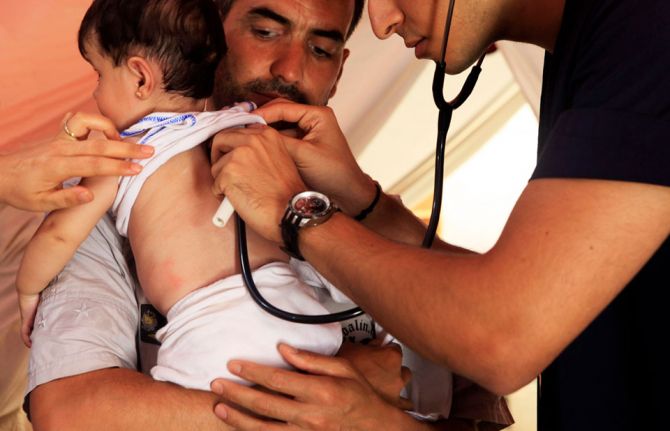
Press Statement
UNAIDS commends Portugal’s decision to grant temporary residency rights for immigrants and asylum seekers
02 April 2020 02 April 2020GENEVA, 2 April 2020—UNAIDS warmly welcomes the decision made by the Portuguese Government to grant temporary residency rights to all immigrants and asylum seekers who applied for residency in the country before 18 March 2020, when the state of emergency for COVID-19 was announced. These rights will give immigrants and asylum seekers access to social and health benefits, including access to the national health service, bank accounts and work and rental contracts, until at least 1 July 2020.
“UNAIDS is urging all countries to adopt a human rights-based approach in responding to COVID-19 that puts people at the centre and respects the rights and dignity of all,” said Winnie Byanyima, Executive Director of UNAIDS. “Portugal has demonstrated leadership and compassion by prioritizing these measures to protect the most vulnerable when responding to COVID-19.”
Migrants face the same health threats to COVID-19 as host populations and must be included to ensure an effective response that addresses both the health and socioeconomic impacts of the pandemic. Migrants and other key and vulnerable populations are often unable to access health and social services owing to fear of deportation, financial costs, legal constraints, language barriers, exclusion and fear of stigma and discrimination. Removing the barriers that prevent people from seeking medical and social care will improve broader public health outcomes, uphold the human rights of the most vulnerable and create a stronger, more effective and more equitable response to COVID-19.
Portugal has pioneered a human rights-based response to HIV since the outset of the epidemic, creating enabling legal environments, enacting progressive drug policies and making HIV treatment free for all, regardless of a person’s migration status. Portugal continues to lead today, driving community-based care models and promoting better integration of health-care services.
To help guide governments, communities and other stakeholders in planning and implementing measures to contain COVID-19, UNAIDS has produced a new guidance document that draws on key lessons from the response to the HIV epidemic, Rights in the time of COVID-19: lessons from HIV for an effective, community-led response.
UNAIDS
The Joint United Nations Programme on HIV/AIDS (UNAIDS) leads and inspires the world to achieve its shared vision of zero new HIV infections, zero discrimination and zero AIDS-related deaths. UNAIDS unites the efforts of 11 UN organizations—UNHCR, UNICEF, WFP, UNDP, UNFPA, UNODC, UN Women, ILO, UNESCO, WHO and the World Bank—and works closely with global and national partners towards ending the AIDS epidemic by 2030 as part of the Sustainable Development Goals. Learn more at unaids.org and connect with us on Facebook, Twitter, Instagram and YouTube.
Contact
UNAIDS GenevaSophie Barton-Knott
tel. +41 22 791 1697
bartonknotts@unaids.org
UNAIDS Media
tel. +41 22 791 4237
communications@unaids.org
Our work
Press centre
Download the printable version (PDF)
Region/country

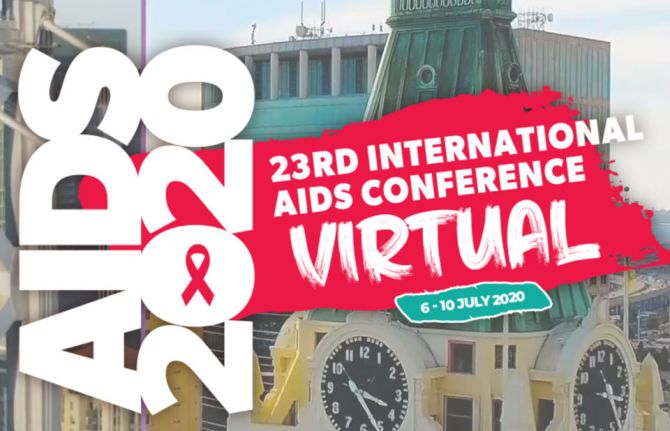
Press Statement
UNAIDS supports decision to hold the 23rd International AIDS Conference virtually, hopes that HIV2020 can be held in some form
27 March 2020 27 March 2020GENEVA, 27 March 2020—UNAIDS welcomes the decision by the International AIDS Society to hold the 23rd International AIDS Conference in July as a virtual gathering and hopes that the key population networks organizing the HIV2020 conference can find an alternative solution to hold their conference.
In the light of the COVID-19 pandemic, AIDS 2020: Virtual, organized by the International AIDS Society, will enable the participants to access and engage with the latest HIV science, advocacy and knowledge, and to do so safely.
The organizers of HIV2020, a conference that was due to be held in Mexico in order to provide a safe alternative for people who cannot or will not enter the United States of America, have cancelled the conference and will look at alternative arrangements after the Government of Mexico suspended large events in the country.
“I thank the organizers for going ahead with the 2020 International AIDS Conference, and in a way that will protect the lives and well-being of the thousands of participants. I call on people to get together at AIDS 2020: Virtual in greater numbers than ever before and recommit to working together to end the AIDS epidemic,” said Winnie Byanyima, UNAIDS Executive Director. “I hope that HIV2020 can still go ahead in some form and UNAIDS supports the decision of the co-organizers to put the health and safety of communities first.”
Large numbers of people had been expected to attend AIDS 2020 in San Francisco and Oakland, United States. Instead, AIDS 2020: Virtual will allow the participants to engage in virtual sessions, satellites, exhibitions, podcasts and interactive community networking from anywhere in the world. It is hoped that HIV2020 will be held in a similar way.
Kevin Osborne, the Executive Director of the International AIDS Society (IAS), said, “The AIDS 2020: Virtual theme is resilience. There is no better word to describe what’s needed at this time. For today, this resilience is being tested by a rapidly evolving global health landscape, to which we must now add the COVID-19 pandemic. In solidarity, now more than ever the HIV community needs to come together in our shared commitment to ensure that evidence and human rights remain cornerstones of our response.”
Rico Gustav, the Executive Director of the Global Network of People Living with HIV (GNP+), said, “As co-organizers of HIV2020, the Global Network of People Living with HIV and other global networks are unanimous in our decision to cancel the conference. The health and safety of our communities comes first. As COVID-19 affects more countries and communities, we are adapting and supporting our members in these extremely difficult times. The HIV2020 co-organizers will continue to defend and enhance the leadership of key populations and people living with HIV for HIV and health responses locally, nationally and globally, including exploring virtual spaces to enable this.”
UNAIDS urges everyone to remember that COVID-19 is a serious disease. All people living with HIV should take all recommended preventive measures to minimize exposure to, and prevent infection by, the virus that causes COVID-19.
As in the general population, older people living with HIV or people living with HIV with heart or lung problems may be at a higher risk of becoming infected with the virus and of suffering more serious symptoms. We will learn more about how HIV and COVID-19 together impact on people living with HIV from countries and communities responding to both epidemics. Lessons in rolling out innovations or adapting service delivery to minimize the impact on people living with HIV will be shared and replicated as they become available.
The HIV response has shown that strong and effective public health response that engage affected communities must be based on human rights and address both the biological and social contexts of the diseases. As COVID-19 moves into high-density settings and threatens marginalized people and communities, it is critical that information needs, basic hygiene supplies such as soap and water, sufficient food and social supports that respond to income loss and poverty are prioritized and addressed as part of preparation and response.
“The COVID-19 pandemic is affecting the lives of billions of people around the world,” added Ms Byanyima. “We must not forget, however, that the HIV epidemic has not gone away. Even in these difficult times, our partners are making sure that the AIDS response carries on—unsung heroes are ensuring that HIV treatment and prevention services for people living with and affected by HIV continue to be available.”
UNAIDS
The Joint United Nations Programme on HIV/AIDS (UNAIDS) leads and inspires the world to achieve its shared vision of zero new HIV infections, zero discrimination and zero AIDS-related deaths. UNAIDS unites the efforts of 11 UN organizations—UNHCR, UNICEF, WFP, UNDP, UNFPA, UNODC, UN Women, ILO, UNESCO, WHO and the World Bank—and works closely with global and national partners towards ending the AIDS epidemic by 2030 as part of the Sustainable Development Goals. Learn more at unaids.org and connect with us on Facebook, Twitter, Instagram and YouTube.
Contact
UNAIDS GenevaSophie Barton-Knott
tel. +41 79 514 68 96
bartonknotts@unaids.org
UNAIDS Media
tel. +41 22 791 4237
communications@unaids.org
AIDS2020
Press centre
Download the printable version (PDF)

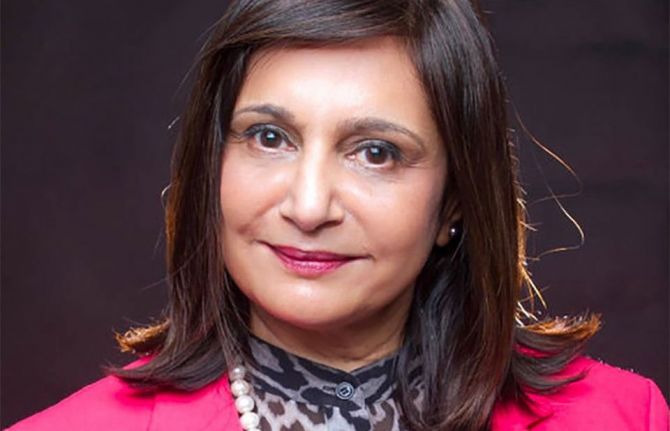
Press Statement
UNAIDS is deeply saddened by the death of pioneering HIV scientist and researcher Gita Ramjee
02 April 2020 02 April 2020GENEVA, 2 April 2020—UNAIDS is shocked and saddened by the sudden death of Gita Ramjee, who died of COVID-19 related complications on 31 March 2020. Her death is an immense loss to the HIV prevention research community. UNAIDS offers its full support to all efforts to stop the spread of COVID-19 and prevent more loss of life.
“I am deeply saddened at the news of the passing of Gita Ramjee,” said Winnie Byanyima, Executive Director of UNAIDS. “She was an eminent scientist who dedicated her life to HIV prevention for women and girls in Africa. Her death is a huge loss at a time when the world needs her most. My condolences to her family, friends and colleagues.”
Ms Ramjee is globally recognized for her ground-breaking research in the field of HIV prevention technologies for women. In 1996, she led a trial on vaginal microbicides for the prevention of HIV among a group of sex workers in Durban, South Africa. The trial was her introduction to the HIV community and was the beginning of her commitment to women-initiated HIV prevention technologies that she pursued with unwavering dedication and commitment for more than two decades.
She held the position of Chief Specialist Scientist at the Aurum Institute, where she worked to improve the health of people and communities through HIV prevention, research and innovation. She previously held the positions of Chief Specialist Scientist and Director of the South African Medical Research Council’s HIV Prevention Unit and Adjunct Professor in the Department of Global Health, University of Washington. She was also an Honorary Professor in the Department of Epidemiology and Population Health at the London School of Hygiene and Tropical Medicine.
Ms Ramjee received several distinguished awards and accolades for her scientific contributions. In 2018, she was awarded the European and Developing Countries Clinical Trials Partnership/European Union Outstanding African Female Scientist Award. She also co-chaired the Microbicide Conferences in 2006, 2008 and 2010 and in 2012 was honoured with the conference’s Lifetime Achievement Award.
UNAIDS mourns her untimely passing and will endeavour to honour her memory by continuing to support global efforts to find methods that enable women to take control of their HIV prevention and reproductive health and rights through informed choices.
UNAIDS
The Joint United Nations Programme on HIV/AIDS (UNAIDS) leads and inspires the world to achieve its shared vision of zero new HIV infections, zero discrimination and zero AIDS-related deaths. UNAIDS unites the efforts of 11 UN organizations—UNHCR, UNICEF, WFP, UNDP, UNFPA, UNODC, UN Women, ILO, UNESCO, WHO and the World Bank—and works closely with global and national partners towards ending the AIDS epidemic by 2030 as part of the Sustainable Development Goals. Learn more at unaids.org and connect with us on Facebook, Twitter, Instagram and YouTube.
Contact
UNAIDS GenevaSophie Barton-Knott
tel. +41 22 791 1697
bartonknotts@unaids.org
UNAIDS Media
tel. +41 22 791 4237
communications@unaids.org
Our work
Press centre
Download the printable version (PDF)

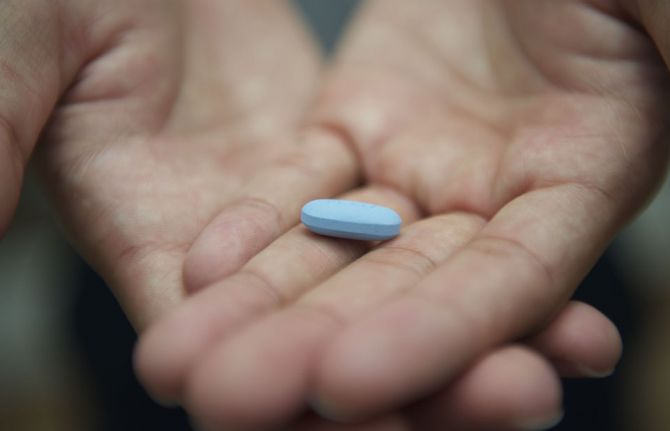
Press Statement
UNAIDS welcomes government’s decision to make PrEP routinely available across England
17 March 2020 17 March 2020GENEVA, 17 March 2020—UNAIDS warmly welcomes the decision made to make pre-exposure prophylaxis (PrEP) available to everyone who needs it in England. Activists and advocates have been campaigning for a number of years to make the life-saving preventative HIV medicine available to people at higher risk of HIV and on 15 March the government announced that PrEP will be made available across the country as part of the government’s efforts to end HIV transmission by 2030.
“This is absolutely the right thing to do,” said Winnie Byanyima, Executive Director of UNAIDS. “PrEP has been evaluated across different age groups among gay men and other men who have sex with men, transgender women, heterosexual men and women and people who inject drugs. In each of these contexts, the data are clear: PrEP prevents HIV and must be made available to all who need it.”
From 2017, PrEP was available in England as part of the Impact trial, which enrolled around 20 000 participants. The government has committed £16 million from 2020 to 2021 for the roll-out of PrEP through the National Health Service, starting in April 2020.
The availability of PrEP through the Impact trial is believed to have contributed to the fall in new HIV infections among gay men and other men who have sex with men across England. New infections among gay men and other men who have sex with men are estimated to have fallen by 71% from their peak in 2012. Efforts are being put in place to improve the availability of PrEP, as part of a comprehensive sexual health service, to other groups that could benefit.
The United Kingdom of Great Britain and Northern Ireland has accelerated its response to HIV and has already achieved the 90–90–90 targets. Of the estimated 103 800 people living with HIV in the United Kingdom in 2018, 93% had been diagnosed with the virus, of whom 97% were accessing treatment, and, of the people on treatment, 97% had undetectable viral loads, meaning they cannot transmit the virus.
UNAIDS commends the United Kingdom’s decision and will continue to support all efforts across the country to end AIDS by 2030.
UNAIDS
The Joint United Nations Programme on HIV/AIDS (UNAIDS) leads and inspires the world to achieve its shared vision of zero new HIV infections, zero discrimination and zero AIDS-related deaths. UNAIDS unites the efforts of 11 UN organizations—UNHCR, UNICEF, WFP, UNDP, UNFPA, UNODC, UN Women, ILO, UNESCO, WHO and the World Bank—and works closely with global and national partners towards ending the AIDS epidemic by 2030 as part of the Sustainable Development Goals. Learn more at unaids.org and connect with us on Facebook, Twitter, Instagram and YouTube.
Contact
UNAIDS GenevaSophie Barton-Knott
tel. +41 22 791 1697
bartonknotts@unaids.org
UNAIDS Media
tel. +41 22 791 4237
communications@unaids.org
Press centre
Download the printable version (PDF)
Region/country

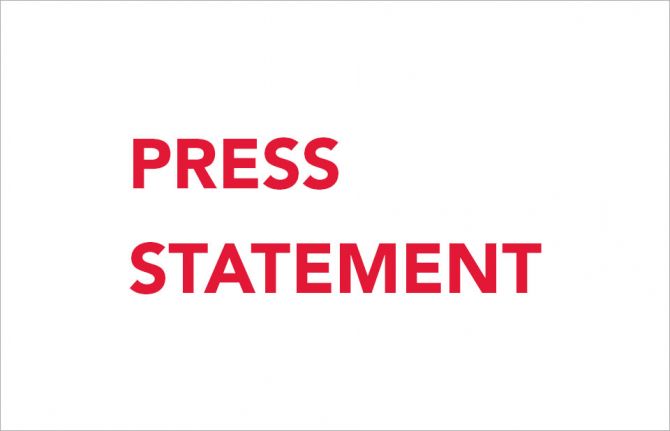
Press Statement
UNAIDS statement on the forced and coerced sterilization of women living with HIV
28 February 2020 28 February 2020GENEVA, 28 February 2020—Women living with HIV around the world have been fighting for decades for the recognition of their sexual and reproductive health and rights, including their right to start a family and have children. However, over the years, there have been far too many examples of forced sterilizations and coerced abortions.
The sixty-fourth session of the Commission on the Status of Women will be held at the United Nations Headquarters in New York, United States of America, in March 2020 and will be a reminder that 25 years ago governments adopted the Beijing Declaration and Platform for Action. Governments agreed and committed to uphold the human rights of all women and to protect and preserve their sexual and reproductive health and rights.
Those rights include the right to start a family and have children, the right to decide the number and spacing of their children, the right to reproductive autonomy and the right to access quality services to support their reproductive health choices, based on their informed, safe and voluntary consent.
These are fundamental human rights that belong to all women, regardless of HIV status, and are guaranteed in global and regional treaties. In 2016, the United Nations General Assembly committed to ending forced sterilization, in particular the sterilization of women living with HIV, in the Political Declaration on Ending AIDS.
The South African Commission on Gender Equality’s report dated February 2020 reminds us of the need for reproductive justice for women living with HIV, and that we must be constantly vigilant for and responsive to violations.
UNAIDS acknowledges the report and its findings that women living with HIV have been subjected to forced and/or coerced sterilization. UNAIDS thanks the International Community of Women Living with HIV, and Her Rights Initiative for bringing the cases to the attention of the Commission and we commend the Commission for demanding a response.
UNAIDS notes that South Africa recently launched its National Human Rights Plan to tackle human rights-related barriers to HIV and tuberculosis services and gender inequality in South Africa. UNAIDS and the United Nations family stands ready to fully support government, civil society and stakeholders in the roll-out of the plan.
Contact
UNAIDS GenevaSophie Barton-Knott
tel. +41 22 791 16 97
bartonknotts@unaids.org
UNAIDS Media
tel. +41 22 791 42 37
communications@unaids.org

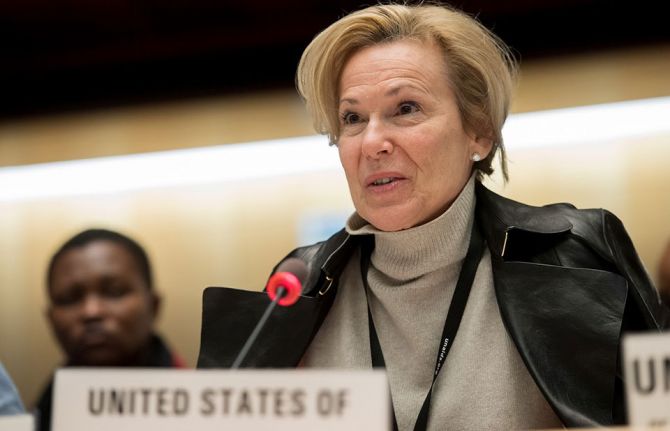
Press Statement
UNAIDS welcomes the appointment of Deborah Birx as White House Coronavirus Response Coordinator
29 February 2020 29 February 2020GENEVA, 29 February 2020—UNAIDS welcomes the appointment of Deborah Birx as the White House Coronavirus Response Coordinator. Ms Birx’s distinguished career as a world-renowned medical expert has included her contribution to the recent progress in the global response to HIV and her commitment to working with communities affected by HIV in her position as the United States Global AIDS Coordinator and United States Special Representative for Global Health Diplomacy.
“Vice President Mike Pence’s decision to appoint Deborah Birx to serve as the White House Coronavirus Response Coordinator is a wise one,” said UNAIDS Executive Director Winnie Byanyima. “Ms Birx has repeatedly demonstrated her unparalleled ability to control infectious diseases and is extremely well positioned to develop an effective plan to address COVID-19 in the United States of America.”
Connecting people in need quickly with services that prevent, or treat, the effects of disease requires a specialized skill that Ms Birx has developed over her nearly three decades as a public health expert. Her experience with tackling disease-related stigma and discrimination and her understanding of how to develop effective health responses that deliver results for people will be invaluable in her new role.
"I am confident that Ms Birx will translate the expertise she has applied to HIV to COVID-19,” said Ms Byanyima. “The insights gleaned from the response to HIV can be helpful for the containment of this new viral threat. There is a need for more collaborative work across disease categories. Even as we battle new diseases, we must remain vigilant about concurrent epidemics.”
UNAIDS
The Joint United Nations Programme on HIV/AIDS (UNAIDS) leads and inspires the world to achieve its shared vision of zero new HIV infections, zero discrimination and zero AIDS-related deaths. UNAIDS unites the efforts of 11 UN organizations—UNHCR, UNICEF, WFP, UNDP, UNFPA, UNODC, UN Women, ILO, UNESCO, WHO and the World Bank—and works closely with global and national partners towards ending the AIDS epidemic by 2030 as part of the Sustainable Development Goals. Learn more at unaids.org and connect with us on Facebook, Twitter, Instagram and YouTube.
Contact
UNAIDS GenevaSophie Barton-Knott
tel. +41 22 791 1697
bartonknotts@unaids.org
UNAIDS Media
tel. +41 22 791 4237
communications@unaids.org
Region/country

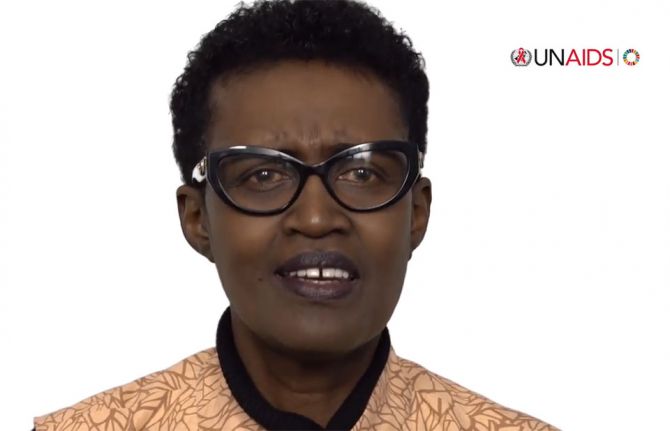
Press Statement
Message from the UNAIDS Executive Director on Zero Discrimination Day and International Women’s Day
01 March 2020 01 March 2020As the Executive Director of UNAIDS, I lead the work of the United Nations to tackle AIDS. I’m also someone who has lost family members to AIDS. This is personal.
Both my own family experience and our collective experience at the United Nations have highlighted the same key lesson: the struggle to beat AIDS is inseparable from the struggle for women’s rights and from the struggle against all forms of discrimination.
AIDS can be beaten, but it will only be beaten if we take on the social and economic injustices that perpetuate it and spur more scientific innovations to address the real needs of women and girls and people living with and vulnerable to HIV.
Worldwide, AIDS remains the biggest killer of women aged 15–49 years. To end AIDS by 2030, we must end gender-based violence, inequality and insecurity and we must ensure that women and girls have equal access to education, health and employment.
We need to transform our societies so that no one is second class and everyone’s human rights are respected. AIDS cannot be beaten while marginalized communities, including lesbian, gay, bisexual, transgender and intersex people, people who inject drugs and sex workers, live in fear of the state or of socially sanctioned violence and abuse.
Beating AIDS depends on tackling all forms of discrimination.
I want to thank all the brave and determined social justice movements who are the true leaders in this work.
I salute you.
Feminism, human rights and zero discrimination are values deeply rooted across the world: they express our humanity, our recognition that I am because you are. And they are central to the struggle to beat AIDS.
Let us beat AIDS. It can be done.
Executive Director of UNAIDS

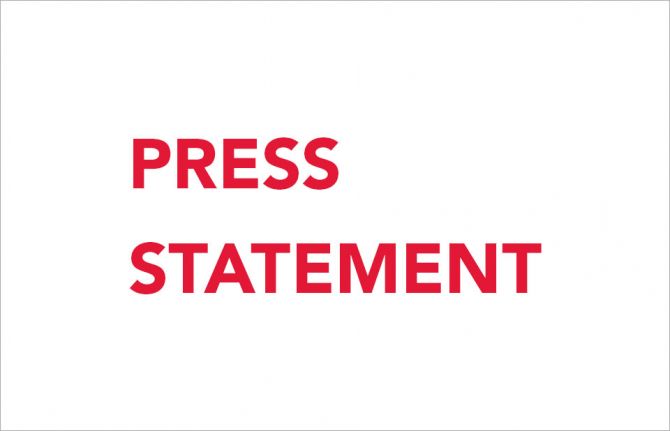
Press Statement
UNAIDS is working with partners in China to ensure that HIV services continue during the novel coronavirus outbreak
06 February 2020 06 February 2020GENEVA, 6 February 2020—UNAIDS expresses its deep condolences to the families who have lost loved ones following the novel coronavirus (2019-nCoV) outbreak. UNAIDS stands in solidarity with China and offers its full support to measures under way to end the outbreak.
“China has made extraordinary efforts to contain the outbreak and I have full confidence in China’s ability to bring the epidemic under control,” said Winnie Byanyima, Executive Director of UNAIDS. “At this difficult time, UNAIDS offers its support to global efforts to stop the spread of the virus.”
UNAIDS is working closely with partners and the authorities in China to ensure that people living with and affected by HIV continue to have access to essential HIV services. In areas affected by the 2019-nCoV outbreak, movement may be restricted and access to services limited as hospitals focus on supporting increasing numbers of 2019-nCoV patients.
It is particularly important that people living with HIV and other chronic diseases have access to adequate supplies of medicines in order to enable them to continue treatment and remain healthy. UNAIDS commends the Chinese National Center for AIDS/STD Control and Prevention for taking swift action to ensure that people living with HIV who are away from their home towns during this lock-down period are able to obtain their monthly refills of antiretroviral therapy.
It is still unclear how many people living with HIV have been affected by 2019-nCoV in China and UNAIDS will continue to monitor developments. UNAIDS will also continue to work with the authorities and community partners to ensure that people living with and affected by HIV have correct information on how to prevent 2019-nCoV and how to access the services they need.
UNAIDS
The Joint United Nations Programme on HIV/AIDS (UNAIDS) leads and inspires the world to achieve its shared vision of zero new HIV infections, zero discrimination and zero AIDS-related deaths. UNAIDS unites the efforts of 11 UN organizations—UNHCR, UNICEF, WFP, UNDP, UNFPA, UNODC, UN Women, ILO, UNESCO, WHO and the World Bank—and works closely with global and national partners towards ending the AIDS epidemic by 2030 as part of the Sustainable Development Goals. Learn more at unaids.org and connect with us on Facebook, Twitter, Instagram and YouTube.
Press centre
Download the printable version (PDF)


Press Statement
HVTN 702 clinical trial of an HIV vaccine stopped
04 February 2020 04 February 2020GENEVA, 4 February 2020—The United States National Institutes of Health has announced that its HVTN 702 clinical trial of an HIV vaccine has been stopped. While no safety concerns were found during the trial, the independent data and safety monitoring board found that the vaccine was ineffective in preventing HIV transmission.
The trial, conducted at 14 sites across South Africa, followed more than 5400 HIV-negative 18–35-year-olds over 18 months. The participants received six injections during the six-month period, either the vaccine or a placebo. An analysis undertaken after at least 60% of the participants had been in the study for more than 18 months showed that there were 129 HIV infections among the people who had the vaccine, while 123 people who had the placebo became infected.
“While we are obviously disappointed with the results, important science has been learned that can be carried forward to future trials. I thank the study team for this important vaccine trial,” said Winnie Byanyima, UNAIDS Executive Director.
Other major vaccines are currently being tested at scale—the Mosaico trial, which is testing a vaccine among transgender people and gay men and other men who have sex with men in the Americas and in Europe, and the Imbokodo trial, which is testing a vaccine among women in sub-Saharan Africa. An effective HIV vaccine may well prove to be key for sustaining progress against HIV in the future.
Despite considerable investment in prevention during the trial, there was still an HIV incidence of around 4% per year among the women in the trial. This is simply too high. HIV transmission can be prevented. This requires the right combination of interventions, including HIV testing; antiretroviral therapy for people living with HIV; pre-exposure prophylaxis, condoms and other prevention options; sexual and reproductive health services, including comprehensive sexuality education; keeping girls in school; and the lifting of social, legal and economic barriers for women and girls.
UNAIDS
The Joint United Nations Programme on HIV/AIDS (UNAIDS) leads and inspires the world to achieve its shared vision of zero new HIV infections, zero discrimination and zero AIDS-related deaths. UNAIDS unites the efforts of 11 UN organizations—UNHCR, UNICEF, WFP, UNDP, UNFPA, UNODC, UN Women, ILO, UNESCO, WHO and the World Bank—and works closely with global and national partners towards ending the AIDS epidemic by 2030 as part of the Sustainable Development Goals. Learn more at unaids.org and connect with us on Facebook, Twitter, Instagram and YouTube.
Press centre
Download the printable version (PDF)

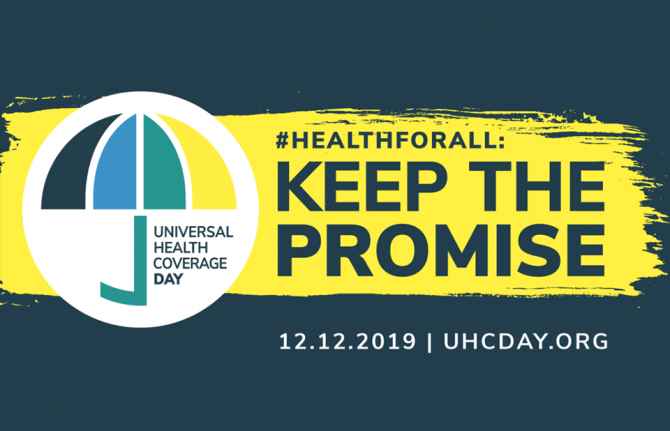
Press Statement
UNAIDS Executive Director's message on Universal Health Coverage Day
12 December 2019 12 December 201912 December 2019
On Universal Health Coverage Day, I stand in solidarity with all people who lack access to the health services that they need. Today, 10 000 of those people will die. Every two minutes, a woman will die giving birth. And every second, three people will be pushed into extreme poverty paying for health care. Today, those with the greatest need for health care are the least likely to get it. This must change, and it must change fast.
Universal health coverage is a human right that belongs to everyone on this planet. No matter who they are or where they live, everyone has the right to access quality health services without facing financial hardship. This was the historic commitment made by United Nations Member States in the political declaration made at the first-ever high-level meeting on universal health coverage last September.
Universal health coverage is central to our time and to the AIDS response, because better health outcomes are, first and foremost, about addressing inequities. Evidence that health coverage has truly become universal will be in improved health and in the elimination of the unacceptable inequality in health outcomes for the most marginalized populations. It will be the day when no parent has to make a choice between which child they will save because the cost of treatment is too high.
Each year, 100 million people are pushed into extreme poverty and 900 million face severe financial hardship paying for their health care. Despite commitments to bring these figures down, alarmingly they are on the rise. The fastest increase is in Africa, where two thirds of countries still charge user fees for all levels of care. This must change. User fees trap people, especially women and children, in cycles of poverty, illness and powerlessness. It is an injustice to force people to choose between paying for food, education or the health services they need. It is a human rights violation to detain patients in hospitals when they can’t afford their bill. Universal health coverage must lift the financial barriers to accessing health care. To ensure that rights are upheld and lives are saved, quality health care should be made available at the point of use for all people.
But universal health coverage needs also to go beyond the health sector, to address the social, economic and structural determinants of health, such as poverty, lack of formal education, gender inequality and gender-based violence. Similarly, it must ensure that vulnerable and key populations are not excluded from accessing health services owing to legal barriers or stigma and discrimination because of who they are.
The AIDS response has taught us that community-led organizations are central to any effective health system. A few days ago, we commemorated World AIDS Day with a call to recognize that communities make the difference. If today more than 24 million people have access to HIV treatment, it is first and foremost thanks to the work of those communities to advocate, deliver services and hold systems accountable.
For universal health coverage to achieve measurable health outcomes, it must fund and include community-led services. Communities need to be at the centre, involved in each step of health governance, planning, implementation, monitoring, reporting and research.
In recognizing the theme of this year’s Universal Health Coverage Day, “Keep the promise”, I call on governments and communities to keep up the momentum generated by the commitment in the political declaration and work together to advance equitable quality health services that reach the people in need and improve their well-being. This will be essential to both ending AIDS and the achievement of the Sustainable Development Goals.
Winnie Byanyima
Executive Director of UNAIDS
Under-Secretary-General of the United Nations
UNAIDS
The Joint United Nations Programme on HIV/AIDS (UNAIDS) leads and inspires the world to achieve its shared vision of zero new HIV infections, zero discrimination and zero AIDS-related deaths. UNAIDS unites the efforts of 11 UN organizations—UNHCR, UNICEF, WFP, UNDP, UNFPA, UNODC, UN Women, ILO, UNESCO, WHO and the World Bank—and works closely with global and national partners towards ending the AIDS epidemic by 2030 as part of the Sustainable Development Goals. Learn more at unaids.org and connect with us on Facebook, Twitter, Instagram and YouTube.
Contact
UNAIDS GenevaAnne-Claire Guichard
tel. +41 22 791 2321
guicharda@unaids.org
UNAIDS Media
tel. +41 22 791 42 37
communications@unaids.org
Learn more about
Press centre
Download the printable version (PDF)
